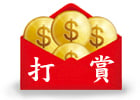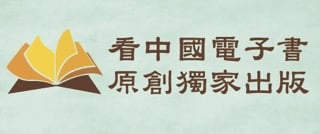雖然如此有權力,中國統治者被一個去世的冤魂嚇著了。居然違反不論以前功過,國葬祭奠死去領導人的傳統。這種做法可能暫時把趙紫陽排除在共產黨的名人榜之外。長遠來講,中國的人民必將恢復一個比較誠實的歷史。
1989年以後,被廢黜的趙紫陽默默無聞地幽居在北京。但是他留下的市場改革的偉大貢獻卻徹底地改變了中國,解放了被約束的經濟能量,為幾十年的發展提供了動力,使得幾千萬人擺脫了貧困。
中國官方的課本上把這些改革都歸功於鄧小平。鄧是趙的早期指導者,後期的迫害者。但是付出了相當的政治風險和個人犧牲的是趙紫陽,自當省領導的60年代、70年代到作為總理的80年代,策劃和實施了這些改革。
在相當一部分的中國人至今還從事的農業工作中,趙領導瞭解散失敗的愚蠢的人民公社系統,代之以自留地和多產多得的經濟政策。隨後,他開始了對工業的改革,放鬆了政府對企業的管制,推廣了沿海的經濟特區,這些最終成了中國長期出口增長的主要動力。
趙紫陽還具有認識到經濟上解放必須由政治上的解放來配合的遠見:更多的民主,寬鬆一點的言論自由和加強法制。這些見解使他失去了鄧小平的支持,在他反對調兵鎮壓天安門的學生時,他被廢黜了。
1989年高層鬥爭的結果:務實的自由經濟和蘇聯式的政治集權統治不良結合的模式從此成了官方奉行的教條。因此對趙紫陽的記憶成為當局如此的尷尬。只有當政治自由回歸中國的時候,趙紫陽才能得到他應有的公正。
原文:
The New York Times:
China's lost leader
Friday, January 21, 2005
Few figures have played a larger role in shaping today's China, particularly its most positive features, than Zhao Ziyang, the former Communist Party leader who died Monday after more than 15 years of house arrest. In trying to treat his death as virtually a state secret, China's current leaders reveal more than they intend about their own profound feelings of political insecurity..Powerful as they are, China's rulers have let themselves be spooked by a ghost, even to the point of defying the tradition of granting full official funeral honors to ranking former leaders, regardless of ideological differences. It may be possible to airbrush Zhao temporarily out of official Communist iconography. In the long term, China's people will surely reclaim a more honest history..Zhao lived quietly and obscurely after being purged during the Tiananmen Square upheaval of 1989. But his great legacy, the market-based reforms of which he was the principal architect, have fundamentally reshaped China, liberating pent-up economic energy, powering decades of growth and lifting hundreds of millions of people out of poverty..Official history books now credit those reforms to Deng Xiaoping, Zhao's early mentor and later persecutor. Yet it was Zhao, at considerable political risk and personal cost, who largely designed them and put them into effect, first as a provincial leader in the 1960s and 1970s, and then nationally, as prime minister and party leader in the 1980s..In agriculture, where most Chinese still work, he led the way in dismantling the failed and stultifying commune system, replacing it with private land plots and economic rewards for increased production. Then he moved on to industry, loosening state controls and promoting the coastal special economic zones that became the primary engines of China's long export-led boom..Zhao also had the long-term vision to recognize that economic liberalization would need to be complemented by political liberalization: greater democracy, freer speech and the growing rule of law. Those views cost him Deng's support and led to his ouster when he argued against sending troops against the students in Tiananmen Square. .The outcome of that 1989 power struggle, a model that uneasily joins freewheeling economic pragmatism to Soviet-style political dictatorship, has been official orthodoxy ever since. That's what makes Zhao's memory so inconvenient. Only when political freedom revives in China will he be given his due..
- 關鍵字搜索:
- 紐約
看完那這篇文章覺得














排序